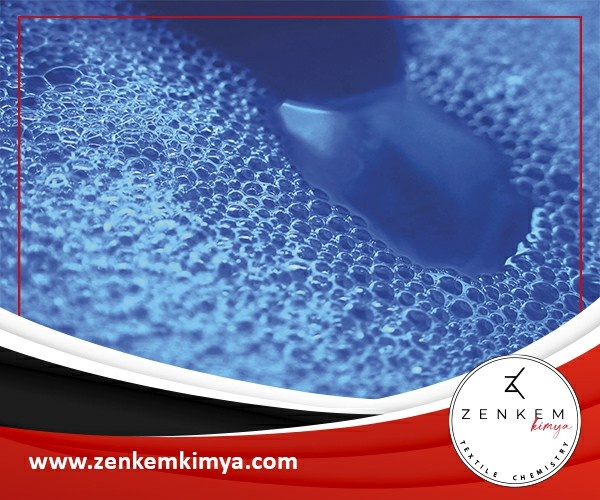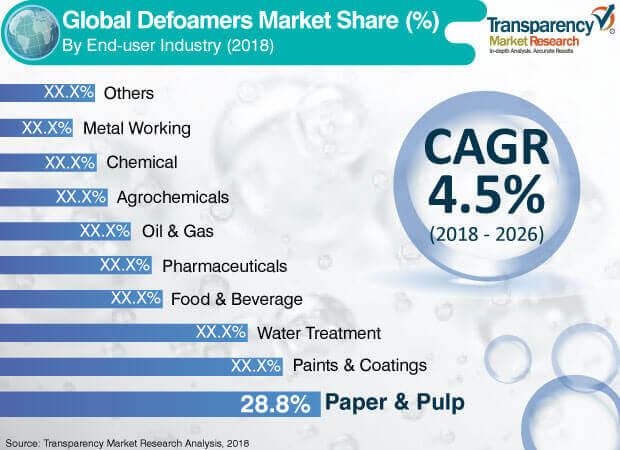Discover the Leading Advantages of Making Use Of Defoamers in Industrial Processes
The utilization of defoamers in industrial processes offers a range of compelling advantages that can boost operational effectiveness and item top quality. By efficiently regulating foam manufacturing, these agents not only enhance product circulation but additionally add to significant expense decreases and boosted sustainability. The ramifications of embracing defoamers might be much more extensive than originally perceived.
Improved Process Effectiveness
Maximizing industrial processes usually includes resolving foaming issues, which can prevent functional efficiency. Foam development can disrupt the appropriate performance of equipment, decrease the effective use of sources, and make complex the surveillance of crucial parameters. By executing defoamers, industries can effectively reduce these issues, leading to structured procedures and enhanced efficiency.
Defoamers work by destabilizing the foam framework, permitting fast collapse and considerable reduction in foam quantity. This activity not only improves the flow of products via devices, such as mixers, activators, and pipelines, but also decreases disturbances triggered by foam overflow. Devices downtime is decreased, allowing for an extra reliable and constant manufacturing procedure.
Furthermore, the use of defoamers can result in reduced power intake. With less foam to manage, pumps and compressors can operate much more effectively, resulting in reduced functional costs and a general improvement in process throughput. Eventually, the tactical usage of defoamers not just addresses immediate frothing challenges yet also adds to a much more effective commercial community, cultivating a competitive advantage in a requiring market.
Improved Item Quality
The combination of defoamers in commercial procedures plays a vital duty in enhancing product top quality. By effectively regulating foam development, defoamers contribute to the uniformity and harmony of final products. Too much foam can result in oygenation, which adversely impacts the appearance and stability of formulas, specifically in industries such as food and beverages, coverings, and pharmaceuticals.

Furthermore, defoamers help with better blending and dispersion of active ingredients, causing homogeneity in formulations. This is essential in applications where specific component proportions are important for performance and safety and security. Furthermore, the removal of foam can decrease the threat of contamination during manufacturing, additional safeguarding item integrity.
Inevitably, by improving item high quality, defoamers not just enhance customer fulfillment but likewise reinforce brand reputation. Their duty in maintaining high-grade standards emphasizes their value in modern commercial processes.
Price Reduction Advantages
Carrying out defoamers in industrial procedures can result in substantial cost decrease advantages. By successfully regulating foam formation, defoamers lessen item loss during production, therefore enhancing product use. This reduction in waste equates straight into lower raw material prices, enhancing general operational performance.
Moreover, using defoamers can lower power usage. Extreme foam can hinder equipment efficiency, leading to raised power demands to preserve manufacturing levels. By minimizing foam, defoamers assist in smoother procedures, enabling equipment to run more effectively and reducing power expenses.

In addition, defoamers can shorten processing times. By using defoamers, industries can improve their processes, leading to faster turnaround times and improved throughput.

Environmental Impact Reduction
In commercial procedures, making use of defoamers plays an important duty in mitigating environmental effects related to foam generation. Foam can lead to considerable operational inadequacies, causing increased emissions and waste generation. By properly regulating foam, defoamers assist keep procedure performance, therefore lowering websites the general environmental footprint of procedures.
Furthermore, too much foam can overflow containment systems, causing spills that may pollute soil and water resources. Defoamers help reduce this danger by making sure that lathering does not surpass recommended limitations, promoting compliance with environmental regulations. This aggressive strategy not just safeguards ecological communities yet additionally improves the sustainability of industrial practices.
Additionally, making use of defoamers can decrease power usage in different processes. defoamers. Decreasing foam formation diminishes the need for added energy-intensive actions, such as boosted anxiety or pumping, which may otherwise be essential to take care of foam. The adoption of defoamers straightens with more comprehensive sustainability objectives by promoting power effectiveness while reducing the carbon footprint of commercial activities.
Ultimately, incorporating defoamers right into industrial procedures is a critical procedure that sustains ecological stewardship and responsible resource management.
Versatility Across Industries
Across numerous sectors, defoamers show exceptional flexibility, adapting to the particular demands of varied applications. In the food and beverage field, as an example, defoamers are vital to maintaining item high quality by stopping foam development throughout processing, which can impact texture and browse around this web-site flavor. In go a similar way, in the pharmaceutical industry, defoamers make sure the stability of formulas, boosting product effectiveness and uniformity.
In the chemical production realm, defoamers help with smoother procedures by decreasing foam in reaction vessels, therefore boosting yield and lowering downtime. The paper and pulp industry relies upon defoamers to boost the efficiency of pulp processing and paper manufacturing, guaranteeing ideal item integrity. Furthermore, in wastewater therapy centers, defoamers play a crucial duty in controlling foam during oygenation procedures, leading to enhanced therapy end results.
The flexibility of defoamers reaches the oil and gas sector, where they assist in managing foam in boring liquids and manufacturing processes. By tailoring formulas to satisfy certain industry demands, defoamers function as crucial devices that boost functional performance, item high quality, and general process efficiency across a multitude of sectors. Their adaptability underscores their worth in modern-day commercial applications.
Final Thought
In verdict, the use of defoamers in commercial processes provides countless advantages, including enhanced effectiveness, boosted product quality, considerable cost reductions, and positive ecological influences. The integration of defoamers represents a critical method to resolving challenges associated with foam administration in numerous manufacturing environments.
Eventually, the critical use of defoamers not only addresses immediate lathering obstacles however additionally adds to a more effective commercial community, cultivating a competitive benefit in a demanding market.
In industrial procedures, the usage of defoamers plays an important function in mitigating ecological effects linked with foam generation. By efficiently regulating foam, defoamers help keep procedure efficiency, thus lowering the overall environmental impact of operations.
Furthermore, in wastewater treatment centers, defoamers play a vital role in controlling foam during aeration processes, leading to enhanced therapy outcomes.
